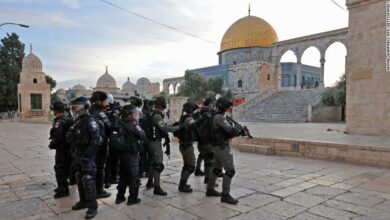
A pro-military member of Parliament on Sunday asked the head of the body to speed up issuing a law that would regulate locations at which demonstrators can protest or hold sit-ins.
Following clashes outside the Defense Ministry in Abbasseya last week that killed 12, including one soldier, and injured hundreds of others, MP Mostafa Bakry called on Speaker Saad al-Katatny to immediately enact the law and accused the People’s Assembly of delaying its issuance for fear of public backlash.
“There was no law regulating protests and we submitted a draft law over two months ago,” Bakry said in a parliamentary session. He said he wanted to have the law passed soon so that “those wishing to bring [Egypt] to a state of chaos” could not succeed.
Bakry added that he wanted Egypt to adopt the same protest laws as the United States and United Kingdom, implying that those countries have harsher demonstration laws than Egypt. He explained that all nations legally regulate demonstrations.
Human rights activists have said any attempt to pass more protest-related legislation would be a setback for the 25 January revolution, saying that the legal system is already full of legislation criminalizing peaceful demonstrations. It is unclear if the proposed law will add any more restrictions to previous legislation.
Former President Hosni Mubarak systematically used the Emergency Law as a tool to suppress opposition to his rule. The former interim Cabinet passed a law in March of last year criminalizing protests.
At the time, rights activists severely condemned the law, describing it as deploying the widely hated tactics that kept Mubarak in office for three decades. At the time, human rights watchdog Amnesty International called on Egypt to scrap the law.
“Any move to curb freedom of assembly and the right to strike in Egypt would be an alarming step backwards and an insult to those who risked — and lost — their lives calling for change over the past two months," read their statement.
In addition, two laws left over from the British colonial era criminalizing demonstrations are still in place.
In response to Bakry’s comments, Katatny asked Mahmoud al-Khodairy, head of the People's Assembly Legislative and Constitutional Committee, to finish drafting the law.
Since Mubarak’s ouster, Egypt has witnessed waves of protests outside the Interior Ministry, the Maspero state television building, the Cabinet building and, most recently, the Defense Ministry. More than 100 protesters have been killed at these demonstrations.




